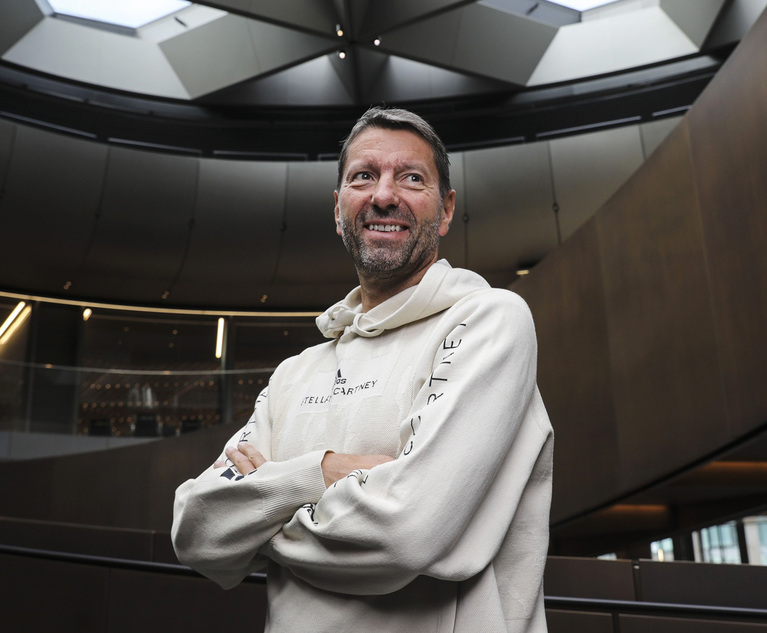Adidas AG announced the surprise departure of Chief Executive Officer Kasper Rorsted next year, forcing the search for a new leader as the German sporting goods company reels from years of lockdowns and consumer boycotts in China.
The Adidas board and Rorsted have “mutually agreed” that he would hand over the top job in the course of next year, according to a statement Monday. Rorsted, whose contract was renewed in 2020 for five years, will remain CEO until a successor has been appointed to ensure a smooth transition.
When Rorsted took over in 2016, investors applauded the choice because the Danish-born executive came with a strong track record of boosting returns and tightening the portfolio at consumer-goods company Henkel AG. At Adidas, Rorsted managed to narrow the gap with archrival Nike Inc. while selling perennial underperformer Reebok, though the last years were marked by difficult conditions because the coronavirus closed retail outlets and production around the world, particularly in key Asian markets.
“After three challenging years that were marked by the economic consequences of the COVID-19 pandemic and geopolitical tensions, it is now the right time to initiate a CEO transition and pave the way for a restart,” the company said in the release announcing Rorsted’s departure.
Adidas shares have lost about 37% in value this year, ranking them among the worst performers on the 50-member Euro Stoxx 50 Index. The stock slumped as much as 6.9 euros, or 4.2%, to 158.7 euros in Frankfurt following the announced CEO change.
During his tenure at Adidas, Rorsted presided over a steady increase in the stock, valuing the company at more than 67 billion euros around this time just last year. Since then, the stock has come back to levels similar to when he took over in 2016. By contrast, Nike and Puma shares have gained in the same period.
Rorsted’s departure was a mutual decision of the supervisory board and the CEO following confidential discussions, people close to the matter said. Rorsted felt worn out after steering Adidas through the pandemic, when he drew public criticism for skipping rent payments for Adidas stores, said the people, who asked not to be identified discussing private deliberations.
Adidas declined to comment beyond the press statement.
Besides the pandemic slump, Rorsted had to contend with criticism that the company had done too little to promote diversity. In June 2020, Adidas human resources chief Karen Parkin, a company veteran of more than two decades, resigned after acknowledging that she wasn’t the right person to lead efforts to create a more diverse workplace following criticism in particular from Black employees.
While Rorsted had made significant progress in modernizing and streamlining the Adidas business model, the company needs a CEO now “who has experience in product, marketing and/or merchandising from adjacent industries to sporting goods,” said Piral Dadhania and Richard Chamberlain, analysts at RBC Europe in a note to clients.
“This should better enable the business to fill gaps in its portfolio in areas such as lifestyle footwear, and better commercialize winning products,” the analysts said.
Adidas is the latest major sporting goods company to ring the changes. Foot Locker, the athletic retailer, is pinning its revival plans on Mary Dillon who joins from Ulta Beauty Inc.
The German company known for its three-stripe logo credited Rorsted for helping speed up the brand’s digital transformation, in particular its focus on direct-to-consumer sales, and doubling sales in North America, the world’s largest sporting goods market.
Adidas, based in the same Bavarian town of Herzogenaurach as German rival Puma, surprised investors with a profit warning in July following a slower-than-expected recovery in Greater China.
Mass testing and lockdowns in China have affected footfall to malls and stores and impacted sales for most retailers. Foreign brands are also struggling to hang on to China as a major growth driver amid consumer boycotts and preferential treatment for homegrown companies including Anta Sports Products Ltd. And Li Ning Co. That’s been a particular challenge for Adidas, which replaced the head of its Chinese operations in March, promoting an executive who had already been managing a local brand in China.
Now even the lowered guidance is seen as ambitious by some analysts because Adidas will need to grow second-half sales by more than 20% outside of China. That’s something that will require “sizable market share gains,” Jefferies analysts led by James Grzinic said in a note last month. “At this juncture investors are unlikely to give Adidas the benefit of the doubt.”
Deirdre Hipwell and Eyk Henning report for Bloomberg News.
NOT FOR REPRINT
© 2024 ALM Global, LLC, All Rights Reserved. Request academic re-use from www.copyright.com. All other uses, submit a request to [email protected]. For more information visit Asset & Logo Licensing.


 Kasper Rorsted, chief executive officer of Adidas. Photo: Simon Dawson/Bloomberg
Kasper Rorsted, chief executive officer of Adidas. Photo: Simon Dawson/Bloomberg




